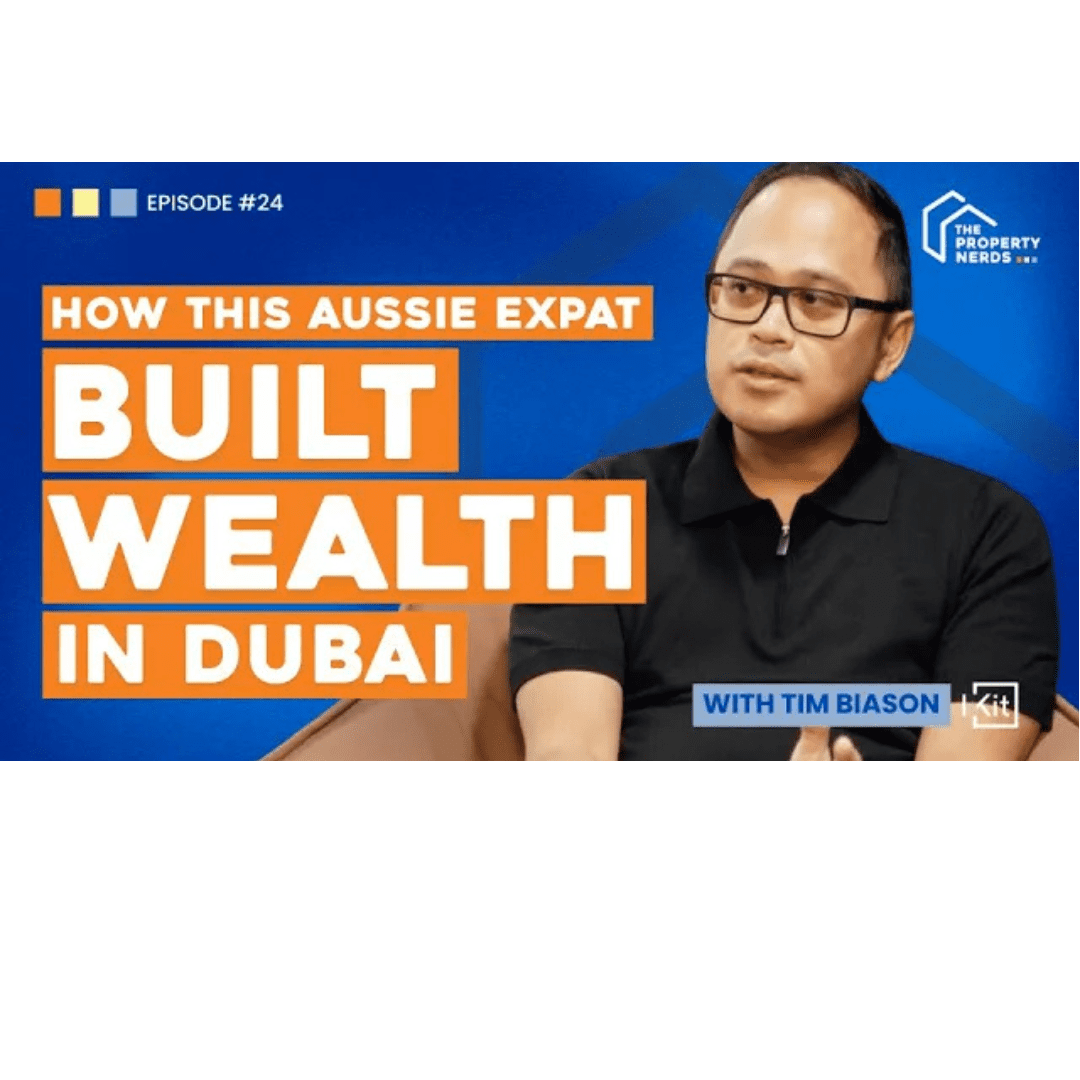Key takeaways
- Property gave Tim a stable, compounding base while his career moved across Qatar, Hong Kong and the UAE.
- Biggest expat roadblocks: lending “shading”, distance from the market, and information overload.
- A buyers agent + portfolio strategist replaced gut feel with data, providing clarity on what to buy, when, and why.
- Use the expat income window—act early, set rules, and keep buying to compound.
The expat lens: career abroad, wealth at home
Tim left Australia in 2015 for aviation roles in Doha and Hong Kong before settling in Dubai in 2020. Even as his career advanced, he kept a consistent theme: own assets in Australia. Early buys near home worked “okay,” but he later shifted from familiarity to research-led decisions to aim for stronger results.
“My wealth has been supported by my career, but it’s really been built by property investing.”
Why many expats stall (and how Tim avoided it)
Transient lifestyle = short-term thinking.Plenty of Aussies enjoy the lifestyle and postpone decisions. Tim did the opposite: he treated his expat years as a high-income window to accelerate portfolio growth.
Gut feel vs data.Like many, Tim’s first purchases leaned on local knowledge and opinions. As an engineer, numbers gave him more comfort—so he moved to a data-first approach with professional guidance.
The three big challenges for expats
1) Finance as a non-resident
- Issue: Lenders may “shade” foreign income and treat tax differently, reducing borrowing capacity.
- Tim’s fix: Work with specialists who understand expat lending policies, present income clearly, and map a staged acquisition plan to your capacity.
2) Distance from the market
- Issue: Hard to read on-the-ground shifts, inspect stock, and sense local demand.
- Tim’s fix: Use a buyers agent to do suburb selection, inspections, negotiation, and due diligence with clear rationale.
3) Information overload
- Issue: Podcasts, opinions, and news can conflict—leading to analysis paralysis.
- Tim’s fix: Align to a documented strategy—end goal, property count, buy timing, hold/sell rules—then execute consistently.
Why property still won (for Tim)
- Compounding: A steady base that grows while you work abroad.
- Leverage: Use stronger expat income to keep buying quality assets.
- Fit for life stages: Choose asset types that match tenant demand you’ve seen first-hand (e.g., space near parks for families).
“If I have the data, I expect higher growth. It’s also peace of mind—I can focus on career and family.”
The strategy shift: from one property to a portfolio
Working with a Portfolio Strategist (Kit) reframed everything:
- Reverse-engineered plan from the end goal.
- Acquisition cadence tied to lending capacity and buffers.
- Clear triggers for future moves (e.g., when expat stint ends, selling local assets, exploring commercial).
- Diversification beyond the backyard, including a Melbourne purchase to balance the Sydney base.
Life abroad vs life at home: the human side
What Tim loves about Dubai: unmatched convenience and global travel access.What he misses in Australia: fresh air, blue skies, beaches, and the genuine everyday interactions.
Tim’s tips for Aussie expats (Dubai or anywhere)
- Start now—use your window. High income years pass quickly; compounding needs time.
- Get the right team. Buyers agent + strategist + expat-savvy broker = clarity and speed.
- Choose data over opinions. Demand suburb-level evidence and property-level due diligence.
- Document your plan. Property count, price bands, buffers, sequencing, review points.
- Automate momentum. Treat acquisitions like project milestones; book the next step in advance.
“You never know when you’re going to leave—make the most of your time here.”
FAQs
Do expats get approved for loans as easily as locals? Not always. Foreign income often gets discounted by lenders and policies vary. A broker who specialises in expats can map your true borrowing power and lender fit.
Is property still a good vehicle from overseas? For many expats, yes—compounding + leverage + professional execution can work well, provided you have buffers, a plan, and local expertise.
Should I buy near where I grew up? Familiarity isn’t a strategy. Chase fundamentals (jobs, population, tight rentals, infrastructure, supply) even if that means borderless buying.
When should I consider commercial? Once the residential base is set and risk tolerance allows, a strategist can help assess whether yield, lease structure, and cash flow fit your goals.
.svg)




